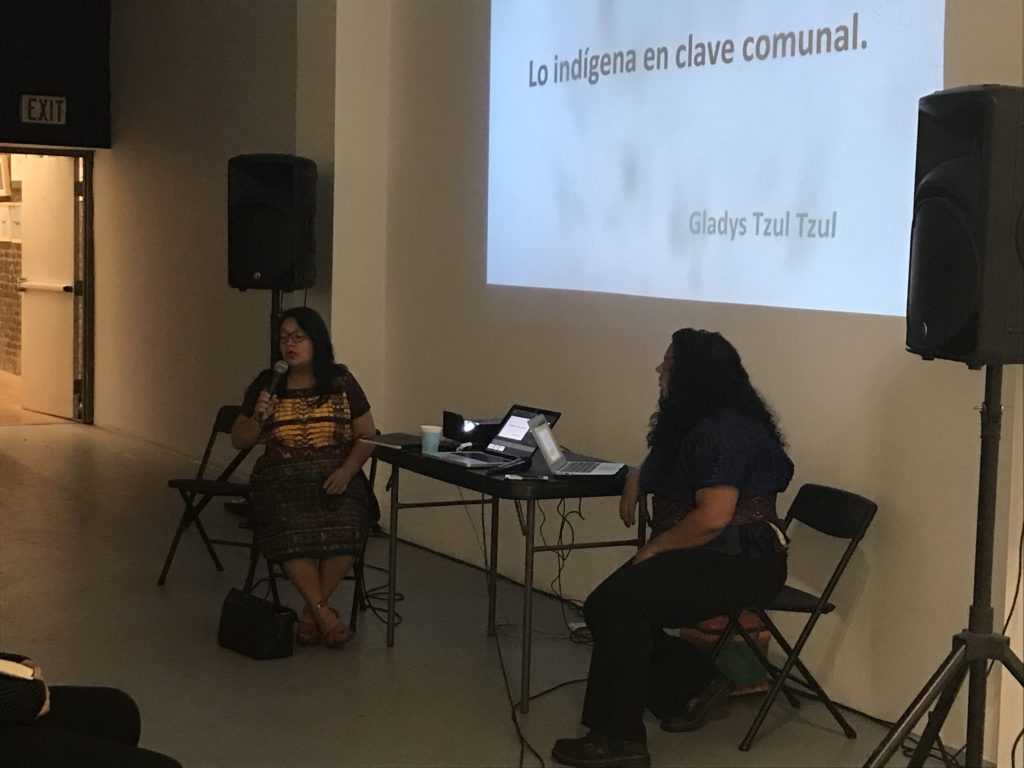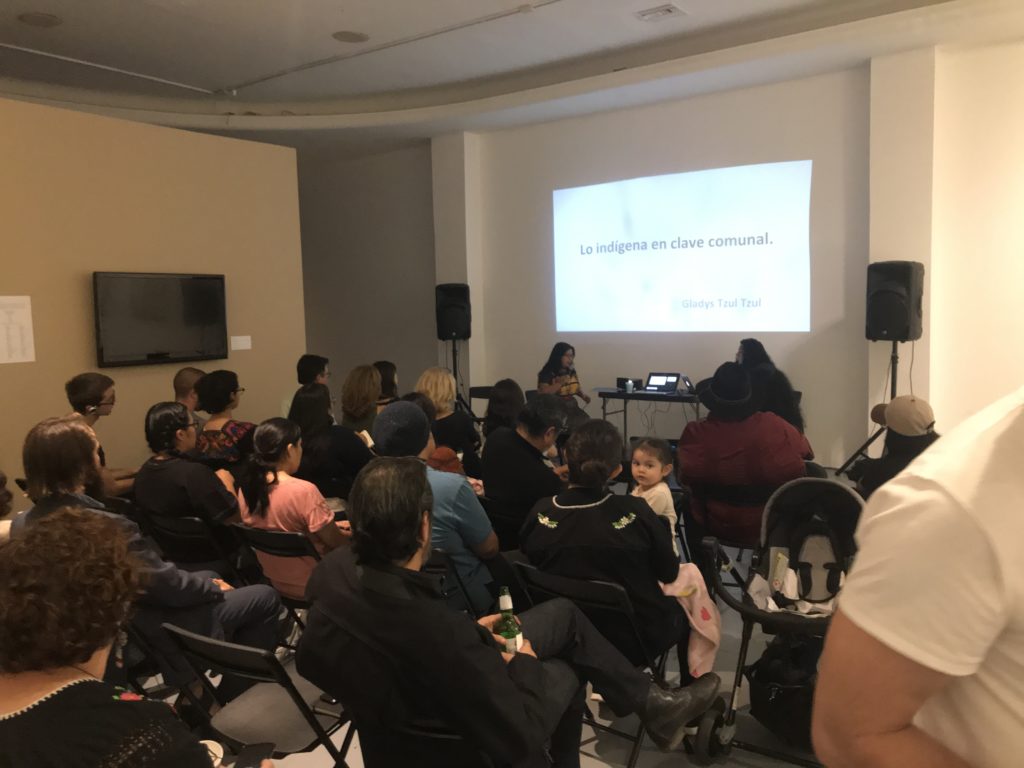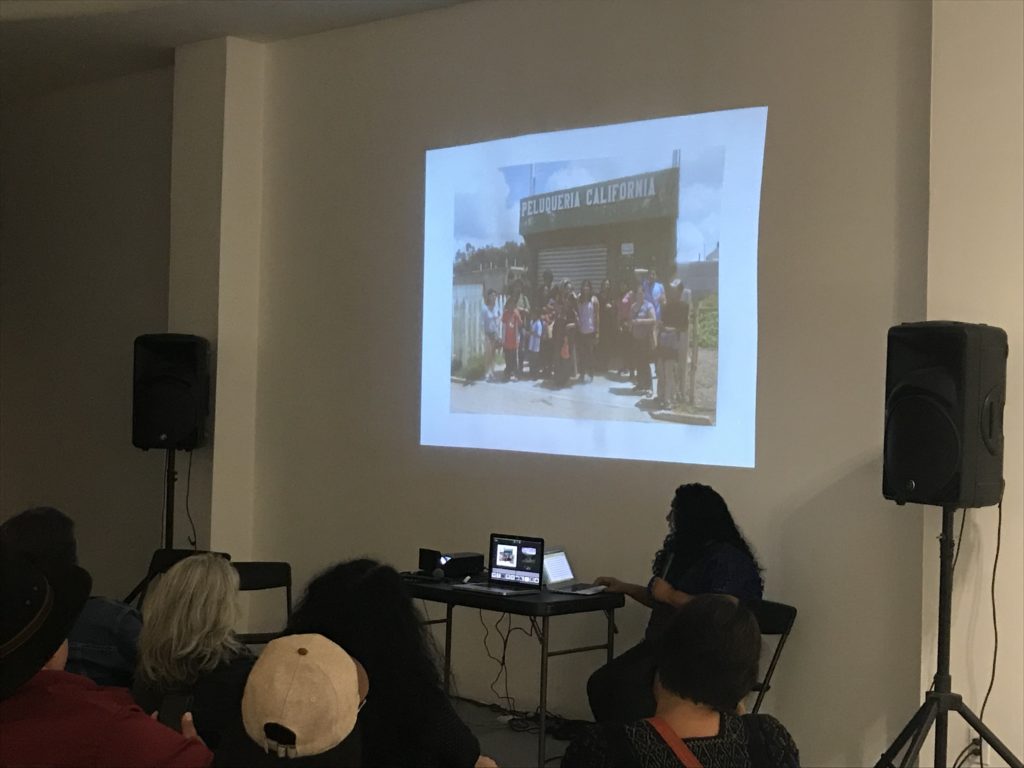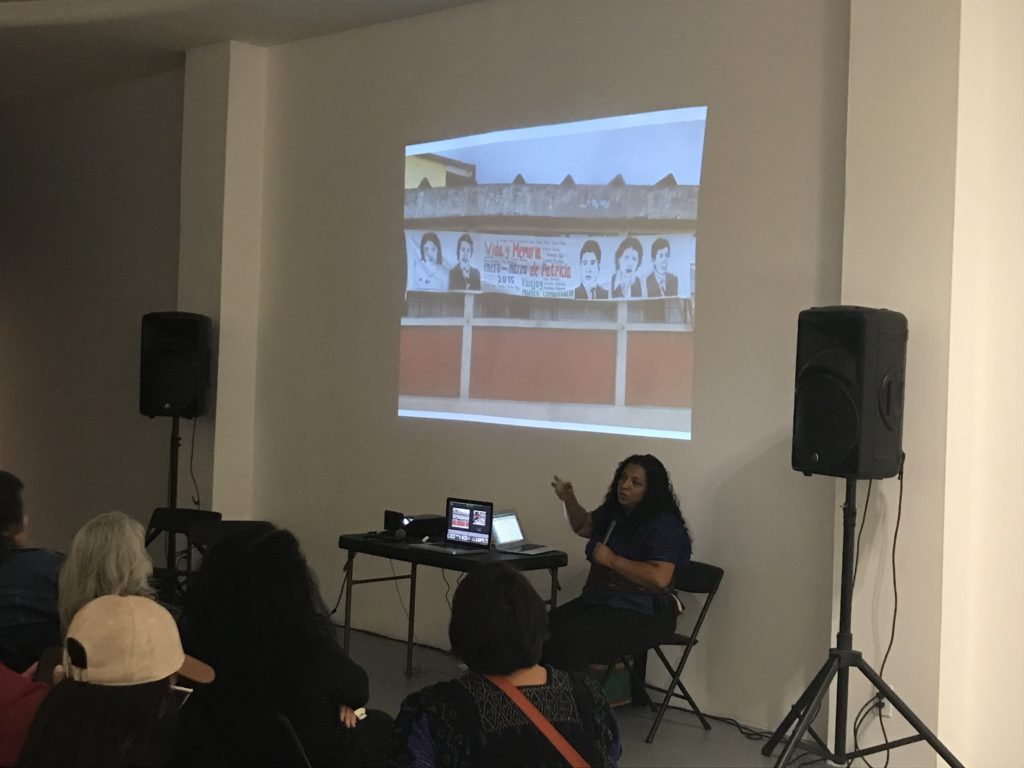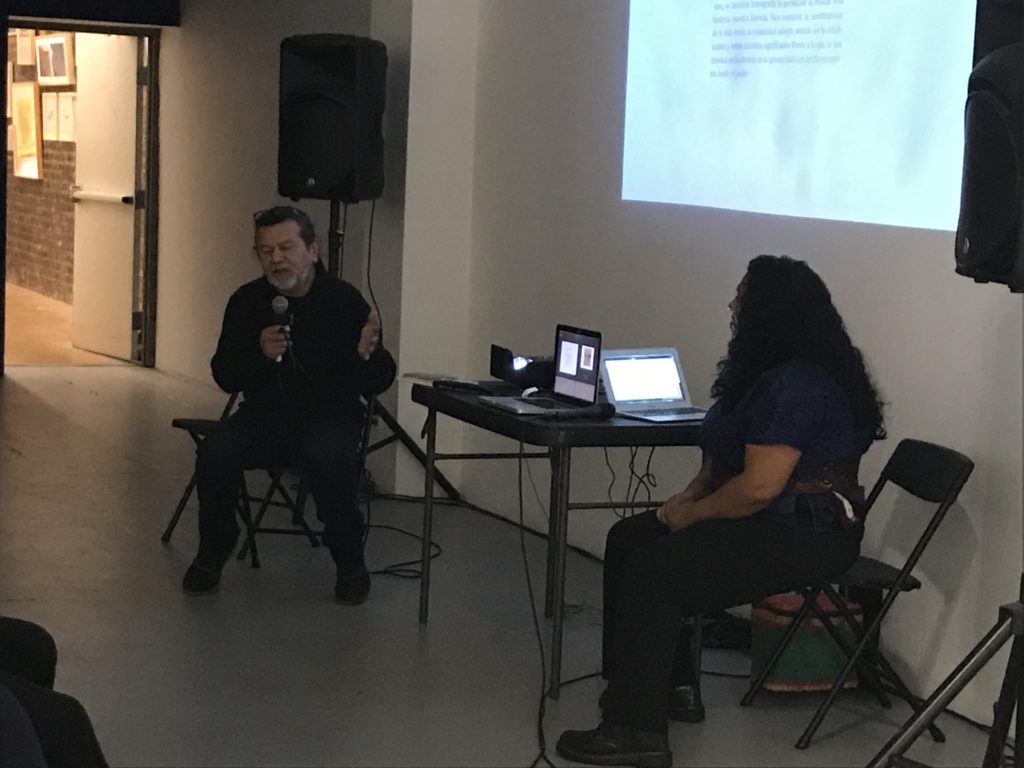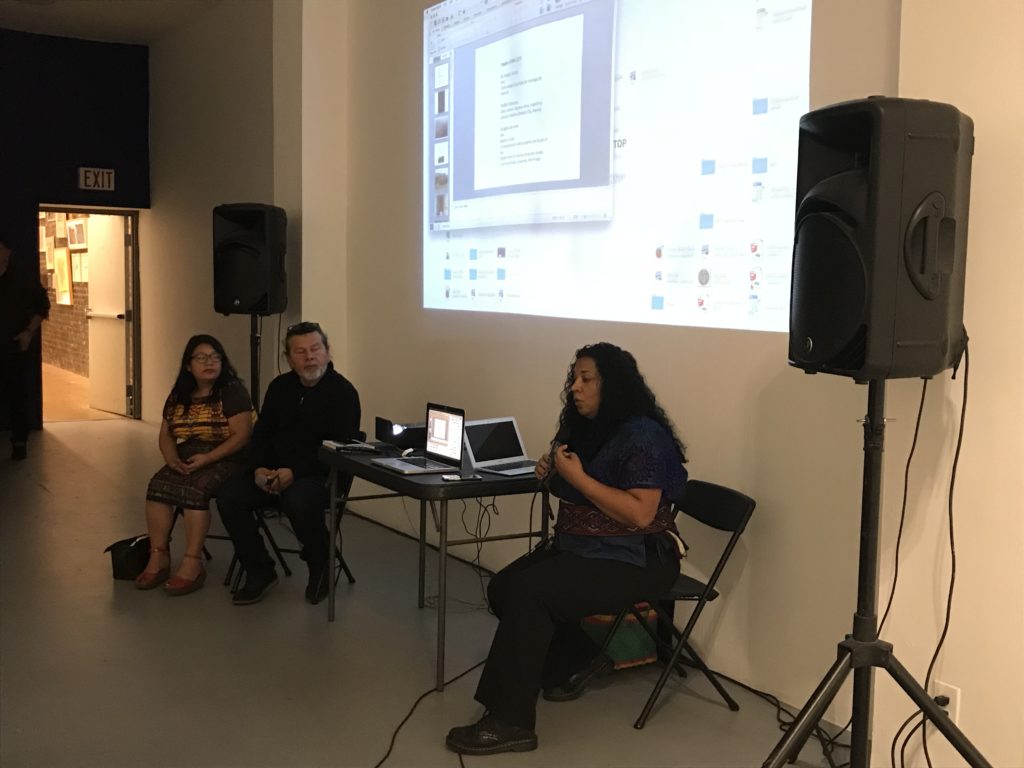
- This event has passed.
Indigenous Resistance: Maya Intellectuals and Cultural Survival
October 12, 2018
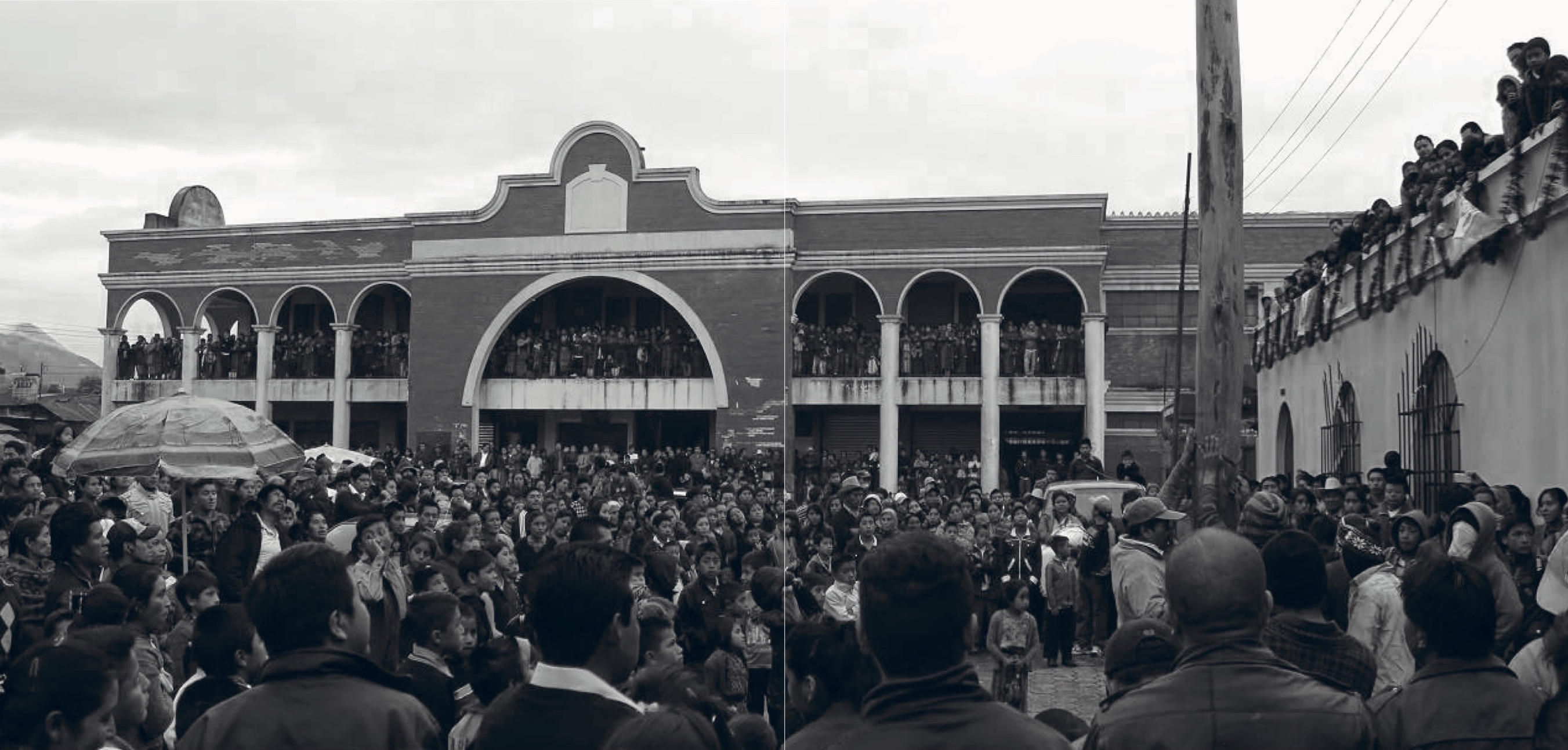
Image courtesy of Archivo Municipal de Patzicía y Museo Kaqjay
Indigenous Resistance: Maya Intellectuals and Cultural Survival
Friday, October 12, 2018, 7 – 9PM.
Indigenous Resistance: Maya Intellectuals and Cultural Survival is a celebration of Maya intellectual and cultural production as a form of resistance and cultural survival, and indigenous solidarity networks throughout the Americas. This event will be conducted in Spanish with English translations, and it will include the presentation of two book publications:
Gobierno comunal indígena y estado guatemalteco: Algunas claves críticas para comprender su tensa relación (Indigenous Communal Government and the Guatemalan State: Some Critical Perspectives to Understand their Tense Relationship) by Maya K’iche’ scholar Gladys Tzul Tzul (Totonicapán, Guatemala).
Kaqjay (2006-////) by Kaqjay Moloj collective (Patzicía, Guatemala), the Comunidad Kaqchikel de Investigaciones(Patzicía, Guatemala), in collaboration with artists Beatriz Cortez (El Salvador); Carla Lamoyi (Argentina) and Antonio Medina (Mexico): FIEBRE Ediciones; and Douglas Carranza Mena (El Salvador), Department Chair of Central American Studies at California State University, Northridge.
The talk will explore local forms of preservation of communal government that exist outside a liberal understanding of right and citizenship, as well as local forms of construction of memory and the formation of local communities across time, and transnational communities across space.
Gladys Tzul Tzul is a public intellectual specializing in the study of Indigenous forms of government, communal land ownership and the struggle between State authority and local government. She is the author of Gobierno comunal indígena y estado guatemalteco: Algunas claves críticas para comprender su tensa relación (Indigenous Communal Government and the Guatemalan State: Some Critical Perspectives to Understand their Tense Relationship), published this year in Guatemala by the Instituto Amaq’, and of the book Sistemas de gobierno comunal indígena: Mujeres y tramas de parentesco en Chuimea’ena (Systems of Indigenous Communal Government: Women and Lineage in Chuimea’ena), published in 2016 in Guatemala by the Editorial Maya’ Wuj and by the Sociedad Comunitaria de Estudios Estratégicos / Tz’i’kin, Centro de Investigación y Pluralismo Jurídico. She holds a doctorate in sociology from the Benemérita Universidad Autónoma de Puebla (BUAP) in Mexico, and a Masters in Social and Political Studies from the Alberto Hurtado University in Chile.
Kaqjay Moloj is a Kaqchikel community organization formed in 2006 as an initiative by professionals, students, farmers, youth, women and men from the Municipality of Patzicía in Guatemala. Their purpose is to establish spaces for the construction of the memory and history of the Kaqchikel and Maya communities. Their work has included photographic exhibitions, interventions in public space related to art and memory, and the reconstruction of the municipal archive in Patzicía.
Comunidad Kaqchikel de Investigacieón (or the Kaqchikel Rsearch Community) was established in 2016 as an extension of Kaqjay Moloj. It is formed by students and professionals within the social sciences (history, anthropology, and archaeology), interested in social research, art, and memory. They aim to establish and maintain a dialogue between local collective memory and communal practices, and the ancient history of the Kaqchikel peoples.
FIEBRE Ediciones is a non-profit editorial project formed by artists Antonio Medina (Mexico) and Carla Lamoyi (Argentina) with the purposed of giving visibility to diverse forms of local resistance and creative expressions throughout Latin America.
Douglas Carranza Mena is a socio-cultural anthropologist specializing in contemporary indigenous communities in El Salvador and Guatemala. He holds a doctorate in socio-cultural anthropology from the University of California, Santa Barbara, and is the chair of the Department of Central American Studies at California State University, Northridge.
Beatriz Cortez is Salvadoran a visual artist and public intellectual based in Los Angeles. Her work explores the experience of migration, the concept of simultaneity, life in multiple temporalities and different versions of modernity, and the future.
The publication of Indigenous Communal Government and the Guatemalan State: Some Critical Perspectives to Understand their Tense Relationship by Maya K’iche’ scholar Gladys Tzul Tzul (Totonicapán, Guatemala), was made possible by the Instituto Amaq’ in Totonicapán, Guatemala.
The publication of Kaqjay (2006-////) was made possible by FIEBRE Ediciones; the Patronato de Arte Contemporáneo (PAC) in Mexico City, Mexico; the Department of Central American Studies and the Central American Research and Policy Institute at California State University, Northridge; and Ballroom Marfa in Marfa, Texas.
This event is made possible thanks to Los Angeles Contemporary Exhibitions (LACE) and the Department of Central American Studies at California State University, Northridge.
Gladys Tzul Tzul and Kaqjay Moloj collective, in collaboration with artists Beatriz Cortez, Carla Lamoyi and Antonio Medina (FIEBRE Ediciones), and with Douglas Carranza, department chair, and students from Central American Studies at California State University, Northridge
